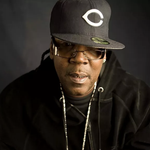
Derrick Jamison survived six death warrants during his two decades on Ohio’s death row, coming within 90 minutes of being executed. After he was exonerated, on the day he walked free, his best friend on death row was executed. His story, he writes in a July 11, 2020 op-ed in the Tampa Bay Times, “illustrates everything that is wrong with the death penalty” and why it should be abolished.
Jamison (pictured) was convicted and sentenced to death in 1985 for the murder of a Cincinnati bartender. His conviction hinged on the testimony of Charles Howell, a co-defendant who avoided the death penalty by falsely implicating Jamison. The prosecution withheld statements that contradicted Howell’s testimony, undermined the prosecution’s theory of how the murder occurred, and established that a prosecution witness had actually identified two other men as the murderers. In 2000, a federal district court judge overturned Jamison’s conviction, ruling that the police and prosecutorial misconduct had denied him a fair trial. It took almost five more years — until February 28, 2005 — before the charges against him were finally dismissed.
Jamison writes that his experience “is not an isolated incident. My wrongful conviction was the result of a deeply flawed system, a system that is infected with racial bias and risks the execution of the innocent.” He says the American legal system operates under “a double standard when it comes to finding justice …. If you are a person of color or a low-income citizen, the pursuit of justice can be an elusive one. But if you are rich, access to resources can make all the difference in the world. It can be the difference between freedom and a life behind bars for a crime you didn’t commit.”
Jamison’s op-ed recounts the six execution dates he faced. He writes, “All six executions were later stayed by the governor, the last came within 90 minutes of my scheduled execution. I was asked about my Last Rites, where my dead body was to be sent, and what I wanted for my last meal.” Ohio conducted 18 executions while Jamison was on death row, including that of William Williams, his best friend in prison. Williams was executed on October 25, 2005 — the same day Jamison was released. Jamison writes that his “story ends differently than most. I am the survivor of what could have been a legal lynching.”
The death penalty affects more than the condemned prisoner, it destroys entire families, Jamison says. “My parents died from the agony and pain of having a son on death row,” he writes. “My father, Joseph Jamison, died in 1987. My mother, Essie Jamison, spent 12 years working tirelessly and desperately to save me.… [She] died before she could see me walk into the sunshine as a free man.”
Though Jamison was exonerated in 2005, he has received neither an apology nor any form of compensation from the state of Ohio. He notes that his experience on death row is not an isolated incident and is the byproduct of a deeply flawed, racially-discriminatory system prone to executing the innocent. “[L]egal or not,” he says, “lynching must end.”
Derrick Jamison, I was Within 90 Minutes of Execution for a Crime I Didn’t Commit, Tampa Bay Times, July 11, 2020.
Innocence
Oct 11, 2024


